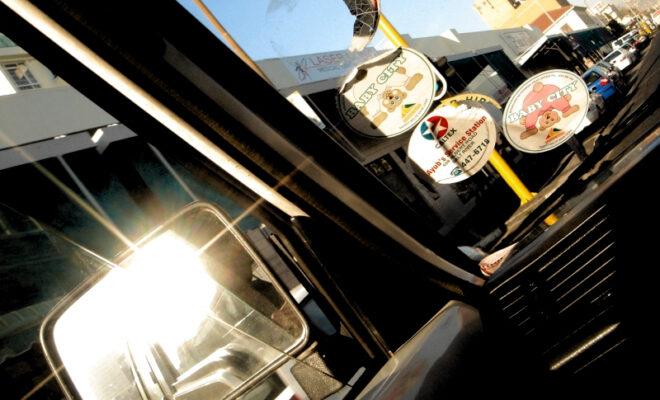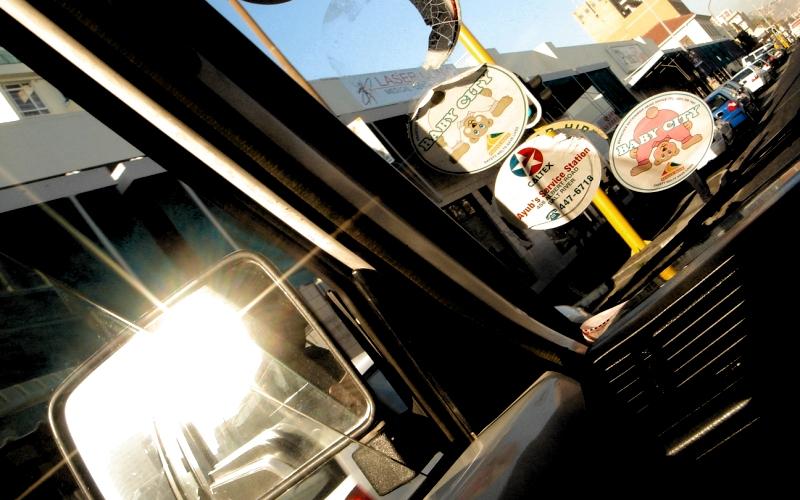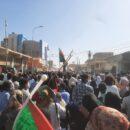“We work for Uber”: South Africa’s gig drivers left alone at the wheel

Drivers who use ride-hailing apps like Uber are getting little help from their companies and fall through the cracks of government support.

Uber drivers are struggling to earn since the implementation of the lockdown. Credit: jaded one.
Read all our COVID-19 coverage
After nine hours on the roads of Johannesburg, Dumele returns home tired and frustrated. Just two months ago, he would have ended the week with around R7,000 ($370) in his pocket from his job as an Uber driver. But since the coronavirus reached South Africa, business has ground to a halt.
From early March, his earnings halved. Since the imposition of a lockdown on 27 March, they have stopped altogether some days. “Today, I earned nothing,” he says.
Dumele is one of thousands of drivers in South Africa who rely on ride-hailing apps such as Uber, Bolt and similar domestic versions for their livelihoods. Under the country’s lockdown measures, they are still allowed to work to help transport essential workers, but only between 5-10am and 4-8pm.
Several who spoke to African Arguments said they are struggling to get any fares. Those still working can barely break even and all have had to find new ways to survive.
Dumele has sold some of his livestock for R2,400 ($125) to tide him over. His landlord, from whom he also rents his car, has also offered him support by waiving the car rental fee and giving him one meal a day.
Thepza, a driver in Cape Town, has used his savings to buy food to last until the end of April. He has also borrowed R500 ($25) but does not know what he will do when these supplies run out. He has stopped driving because he does not want to risk catching coronavirus and spreading it to his pregnant wife.
Tsietsi has also stopped working as it is not economical. He says the costs of renting a car, paying for fuel and buying airtime and data to support the ride-hailing app – which can come to around R5,000 ($260) a week – now far outweigh the potential income from fares.
Many drivers had already been straining to make ends meet before the pandemic hit. Uber has regularly reduced fares since it launched in 2013, meaning that drivers in South Africa were earning less per trip in 2020 than when they started. COVID-19 has made matters much worse.
Appealing for support
In response to coronavirus, Uber said it will offer 10 million free rides and deliveries to healthcare workers and those in need worldwide. It has done relatively little, however, to provide support to its drivers.
Many in South Africa are concerned about catching the disease through their passengers. “In the last 13 days, I found only one customer wearing a mask,” says Dumele. “What if I am infected? We are not getting any compensation for the risk we are taking.”
To address these concerns, Uber said it would send car disinfectants to drivers in areas most affected by the disease. South Africa is unlikely to be on this list. Many drivers there believe the company should either provide them with hand sanitiser and face masks or reimburse for buying these items themselves.
They also say that Uber should provide them basic financial support to survive. Some say that this would show the company cares for its drivers and repay their loyalty. “I am using the Uber app. We work for Uber. My source of income is Uber,” said one driver. Another suggestion was that the company should at least waive its 25% commission from fares in places facing lockdowns.
Uber has released a financial assistance policy to support drivers during the pandemic but with strict limitations. To be eligible, a person must have a confirmed case of COVID-19 or have been individually ordered by a doctor or public health official to self-quarantine. The thousands of drivers worldwide living under a local or national lockdown do not quality.
In the absence of support from Uber, some drivers say the government must step in. South Africa has announced various measures of social protection such as the Temporary Employee Relief Scheme (TERS), but this programme doesn’t apply to the 20% of the workforce that operates in the informal sector or to gig economy drivers who are not officially recognised as “employees”.
Others have suggested that governments could offer cash transfers to those in need, with ride-hailing companies sharing the costs of a “wage replacement” scheme. Given that many African governments are cash-strapped, such programmes might require support from multilateral organisations. Several African ministers have called on their international partners for debt relief to free up essential funds.
“Trapped”
For ride-hailing drivers in South Africa, the notion the COVID-19 pandemic does not discriminate between the rich and poor is a complete farce. They fall into a large swathe of society – alongside informal workers and many others struggling to make ends meet – for whom lockdowns are extremely hard to bear.
This group cannot work from home and cannot survive for long without a daily source of income. They tend to live in densely populated urban areas with dysfunctional public services. And as their already poorly paid jobs are not sufficiently formalised, they are not covered by social welfare protections.
The pandemic has exposed the brutal everyday reality of worker exploitation in the global gig economy. Better regulatory systems are needed to hold platform companies accountable, while governments must do more to protect vulnerable workers.
In the absence of this support, Uber drivers like Thepza are doing their best to adapt, borrowing from friends and family, appealing for support where possible and strategising on possible ways to make ends meet. But under the conditions of lockdown and feeling abandoned by their ride-hailing companies and the government, the options are scarce.
“I am trapped and it is really painful,” he says.





